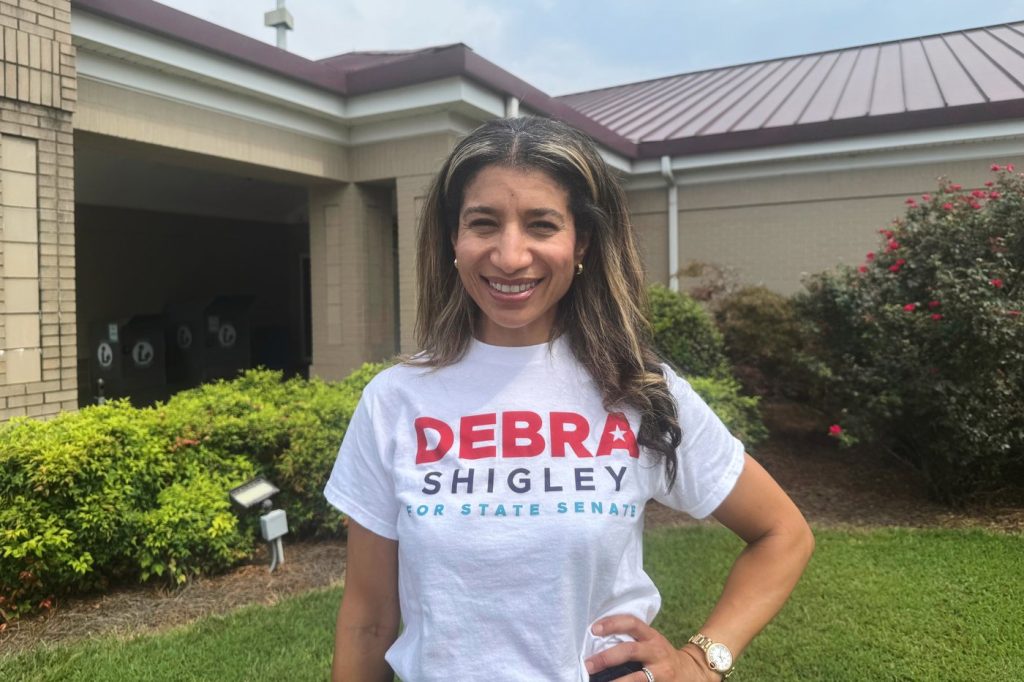CANTON, Ga. (AP) — In a notable special primary election held last month, Democrat Debra Shigley garnered nearly 40% of the votes for a state senate seat in a Republican stronghold near Atlanta. This result has spurred optimism within the Democratic Party, reflecting potential discontent with former President Donald Trump that could lead to future electoral victories.
However, the implications of Shigley's performance remain uncertain. Georgia Republican strategist Brian Robinson cautioned against overanalyzing the results, attributing them to low turnout and suggesting that the anger among Democrats may be more powerful than that of Republicans. He stated, "To read the tea leaves too much is a fool's errand, because it's such a low turnout. All it shows is that Democrats are more angry than Republicans are, and fear and anger are the most important motivators in voter turnout."
Data compiled by The Downballot shows that since Trump took office, Democrats have typically outperformed his 2024 presidential campaign results by an average of 15.7 percentage points in special elections nationwide. While Republicans have largely retained their seats, Democrats have managed to flip several notable positions, such as a Pennsylvania state senate seat in March and two Iowa state Senate seats earlier this year.
Shigley, who is a lawyer and a mother of five, is competing against Republican Jason Dickerson in a runoff set for September 23. This Senate seat became available after former Sen. Brandon Beach, a Republican who previously secured over 70% of the vote in the 2024 elections, was appointed U.S. treasurer. Unlike typical party primaries, Georgia conducts non-partisan special elections, which led Shigley to run against six Republicans. Dickerson finished in second place with 17.4% of the vote.
Shigley's platform focuses on supporting working families and addressing issues such as housing, healthcare, and grocery costs. She aims to mobilize Democrats around these important issues, particularly in light of recent national issues that have led to heightened anxiety among voters. "The chaos that’s happening right now is causing folks not just pain in their pocketbook but the anxiety when you look at the headlines," Shigley articulated during a campaign event in the district, which is located about 20 miles north of Atlanta.
Connor Roberts, a volunteer for Shigley's campaign, highlighted a shift in voter engagement among those who previously leaned liberal but are now galvanized by Trump's actions, particularly in special elections where they might have stayed home before.
On the other side, Dickerson is utilizing traditional conservative messaging, advocating for lower taxes, reduced bureaucracy, stricter immigration enforcement, and "election integrity." His campaign emphasizes his background as a businessman and his community engagement through charitable work.
As Shigley continues her campaign, the local Democratic Party chair, Nate Rich, has noted a surge in enthusiasm and volunteerism within the party, reflecting a significant boost in grassroots organizing that could be critical for future elections. Rich stated, "The small army that we built, we’re training them up." The implications of Shigley’s race extend beyond this single election, as Democrats aim to leverage local races into broader statewide support in anticipation of important elections in 2026, including those for governor and U.S. Senate.
Despite this enthusiasm, Georgia Republican Party chairman Josh McKoon expressed skepticism about the significance of Shigley’s 39% in a low-turnout election, arguing that it indicates a desperate search for good news among Democrats. Political science professor Charles Bullock III noted that the upcoming 2026 elections will hinge significantly on how voters view Trump and whether he fulfills his promises. He added that broader trends in election outcomes would be more informative if Democrats manage to flip additional seats nationwide.











